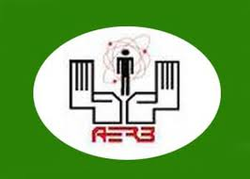In India, the Court of Auditors published a report on 16 August 2012 criticizing the Atomic Energy Regulatory Board (AERB) for its structural lack of independence.
http://www.thejournalofregulation.com/spip.php?article1586

India is transforming its energy policy, because it depends too much of coal and plans to expand its nuclear industry. Its agency, the Atomic Energy Regulatory Board (AERB) is in charge of overseeing nuclear security. But the Indian Court of Auditors issued a report on 16 August 2012, claimed that such a nuclear deployment could not take place only if the agency is structurally modified. Indeed, it is currently dependent on the federal Government, while independence is required for any regulator. In addition, it has no real powers of control and intervention. It is therefore not a true regulator, and in these conditions, expand nuclear energy would constitute a great risk.
© thejournalofregulation
In India, the nuclear system has a structure, the Atomic Energy Regulatory Board (AERD). But when we examine its structure, it appears that it is a federal agency subject to the government, whose role is to observe what is happening, to conduct scientific research on the security and generate advice. Something between the administrative services, the counsel of wise, and the University.
But this does not constitute a regulator, whatever the quality of the people involved. It is for, the Court of Auditors published a report on 16 August 2012 to assert that the very structure of this agency does not match with the need for nuclear regulation, particularly because of the recent disasters which have occurred and which requires real regulators, that is both independent and powerful.
However, the Atomic Energy Regulatory Board (AERD) is neither one nor the other.
The report indicates that India does not want develop its nuclear industry, in which case it may remain there, or may develop to which case it must transform this advised observer in a real regulator.
This means that the regulator should be institutionally independent of the government, what it is not for the moment. Remembered that the Japanese recent reform by the Act of 20 June 2012 transformed a government agency in an independent regulator.
Concerning the powers, the report asks that the Atomic Energy Regulatory Board (AERD) has the power to control radioactive substances in plants, and may impose emergency procedures.
The report concludes that, otherwise, it would be unreasonable to grow a nuclear energy sector without a real regulator of this type. It will be noted that the report of the Japanese Parliament established following the disaster of Fukushima and published on July 5, 2012 indicated that this was indeed first and foremost a failure of regulation. It will be noted on the other hand that, in different countries, the Courts of Auditors are not limited to the audit of public accounts, and are increasingly involved in public debate or policy on regulatory institutions.

votre commentaire